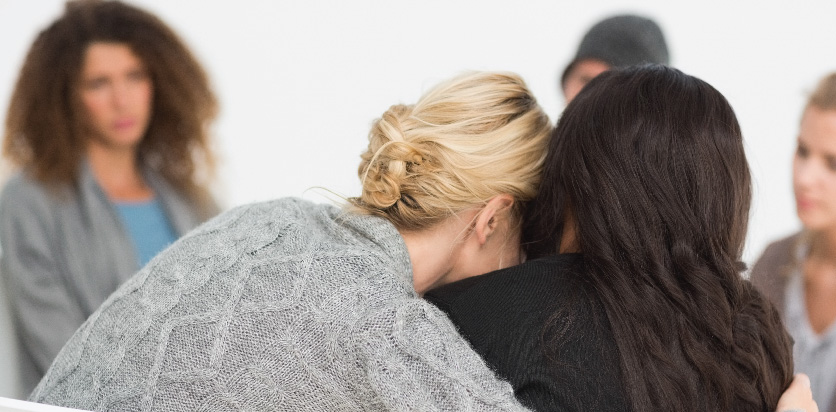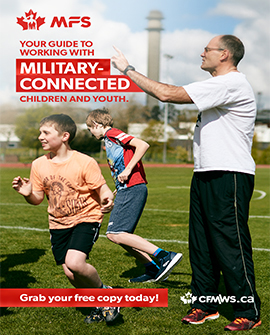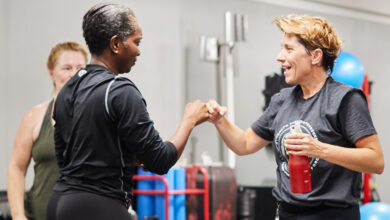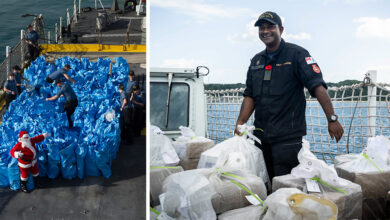Programs & Services
Helping Our Peers by Providing Empathy offers Families of the Fallen Hope
On June 14, the program Helping Our Peers by Providing Empathy (HOPE) will be marking a milestone by observing its 10th anniversary. Over the years HOPE has been a beacon of hope to families who have lost a loved one as a result of military service. A grassroots program, HOPE is led by volunteers who themselves have experienced loss.
“When you’re meeting with a family that is more vulnerable or at the beginning of their journey often families will say ‘I cannot survive that how can I survive that.’ Looking up to a volunteer who is farther ahead in their grief journey is really inspiring in terms of hope. It’s also extremely safe because there’s no judgment, so families are really able to open up to our volunteers and really share their deep suffering because there’s not judgment,” said Sophie Richards, HOPE Program Manager.
Established in 2006, the program assists families who have lost a loved one either through an accident, suicide, or natural causes during their service in the Canadian Armed Forces (CAF).
The more than 50 volunteers who work with HOPE have all lost someone in their lives whether it be a spouse, a child, or a sibling.
Volunteers are paired with families who are typically at the beginning of their grief journey and are experiencing a similar type of loss.
“I think particularly about this one peer I had. He was angry and just upset about many things. And then when I look back in a few months and speak with that peer now, it’s just a total transformation from the depths of hell to bliss. The guy is doing really well now. So, those kind of things make you feel really good,” said Carl Wilson, a HOPE volunteer who lost his son in Afghanistan.
Wilson and many other volunteers, at various times, have been helped by HOPE and in turn become volunteers to give back.
“It was a great thing for me because at that time I felt my family was just falling apart because of what was going on, and it was a difficult thing but this seemed to bring together everything for me. Things got better, and I started working with people. This changed my life forever,” added Wilson.
The program’s volunteers can understand families and their grief in a way others may not.
“A death in the military is not like a regular death. In a regular death the person dies, and two days later they’re buried and then you have that time to adjust. With us, especially during Afghanistan, sometimes it was almost one week before the body came home, two weeks before funerals then you had the memorial after. So, it was very drawn out, and the media was very intrusive, as well, so it was very difficult,” said HOPE volunteer Jane Byers, who lost her son in Afghanistan.
Volunteers are stringently trained and are first screened by doctors. The five-day intense training gives volunteers the tools on topics like healthy relationships, conflict, and boundaries, to start mentoring families. Volunteers are also given a two-day suicide intervention training.
Throughout the year volunteers also meet for professional development to share strategies and build on their tools.
Though the training is aimed at assisting peers, many volunteers feel rejuvenated themselves.
“Each time we meet, I know I can speak for every one of the volunteers, we come away with a different sense of ourselves. Each seminar provides so much strength. Each time we meet, getting together with people who have gone through exactly what we have gone through, provides so much resilience in each of us. We are born again each time we come away. It’s a whole new sense of self and self-worth” said Theresa Charbonneau, also a HOPE volunteer.
Speaking to someone who has gone through a similar situation can make all the difference in the world, for both families and volunteers.
“It’s given me hope and given me strength. The strength to carry on, the strength that I didn’t die with Andrew [son] and I need to live. I need to live for me, and I need to live for my family. It’s given me the inner fortitude and the strength to realize that the best thing I can do for me and the best thing I can do to honour my son is to live life the best way I know how and for me a big part of that is HOPE,” said Charbonneau.
Over the past decade, HOPE has reached more than 800 families and according to a recent survey conducted by the program, HOPE has played a vital role for those families.
“Overall, participants really described that the HOPE program is highly effective and very vital for the bereaved families who struggle with their loss. It also showed the program has a very significant positive impact on their emotional healing and family well-being,” said Richards.
Despite the loss and grief, HOPE volunteers and families believe that the program truly gives them hope for the future.
“We don’t have to apologize for our tears. It’s one of the things we all say. Having the knowledge that yeah I’m okay, this is normal and being able to share that with other people that think they’re losing their minds, but they’re not, they’re normal, they’re on the road to recovery. We never fully recover. We will always have that hole in our hearts but it’s been a wonderful experience, and I hope the program is around forever,” said Byers.
If you have lost a loved one due to service in the CAF and want to find a HOPE representative in your community call 1-800-883-6094 or email [email protected].










